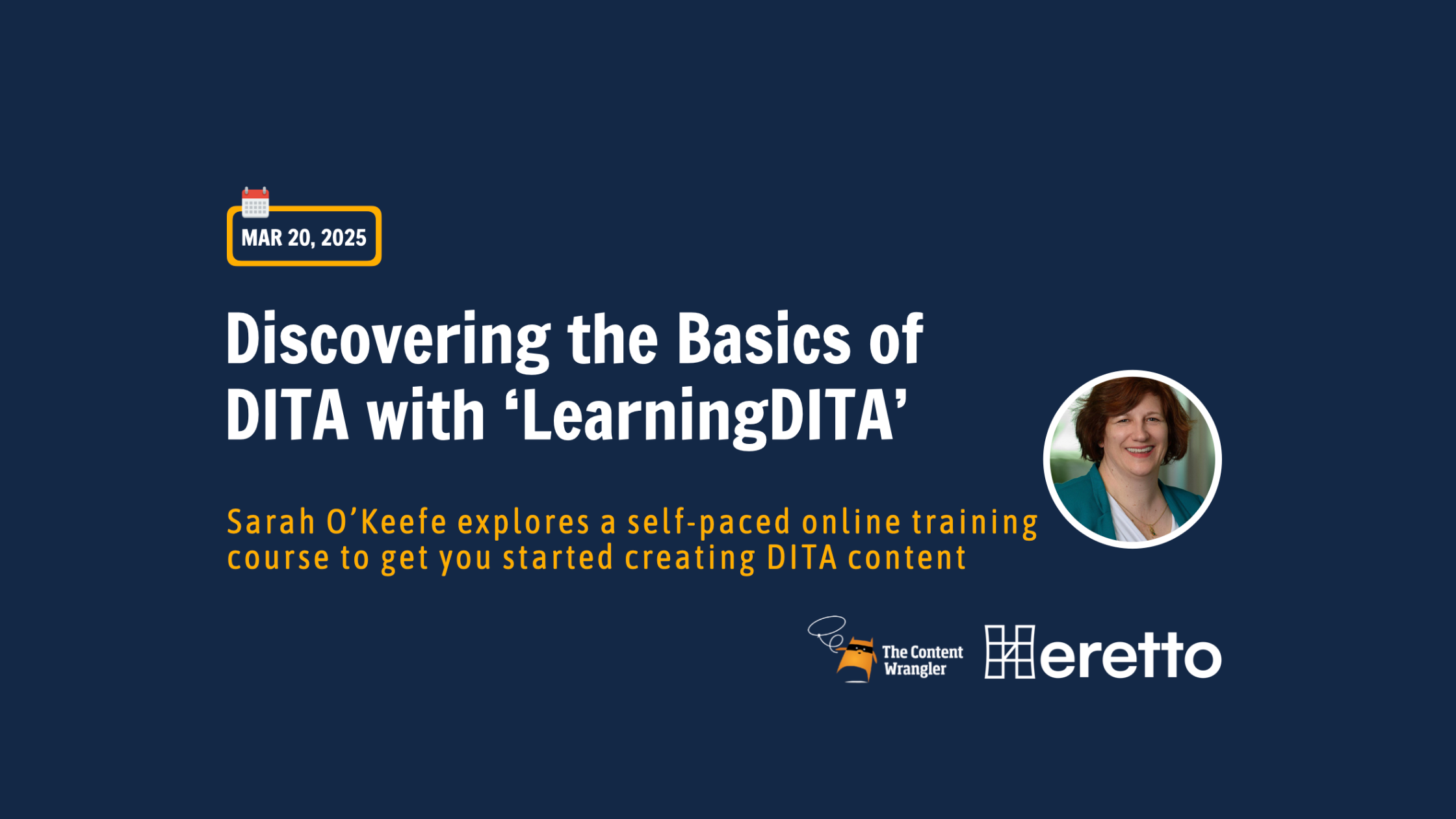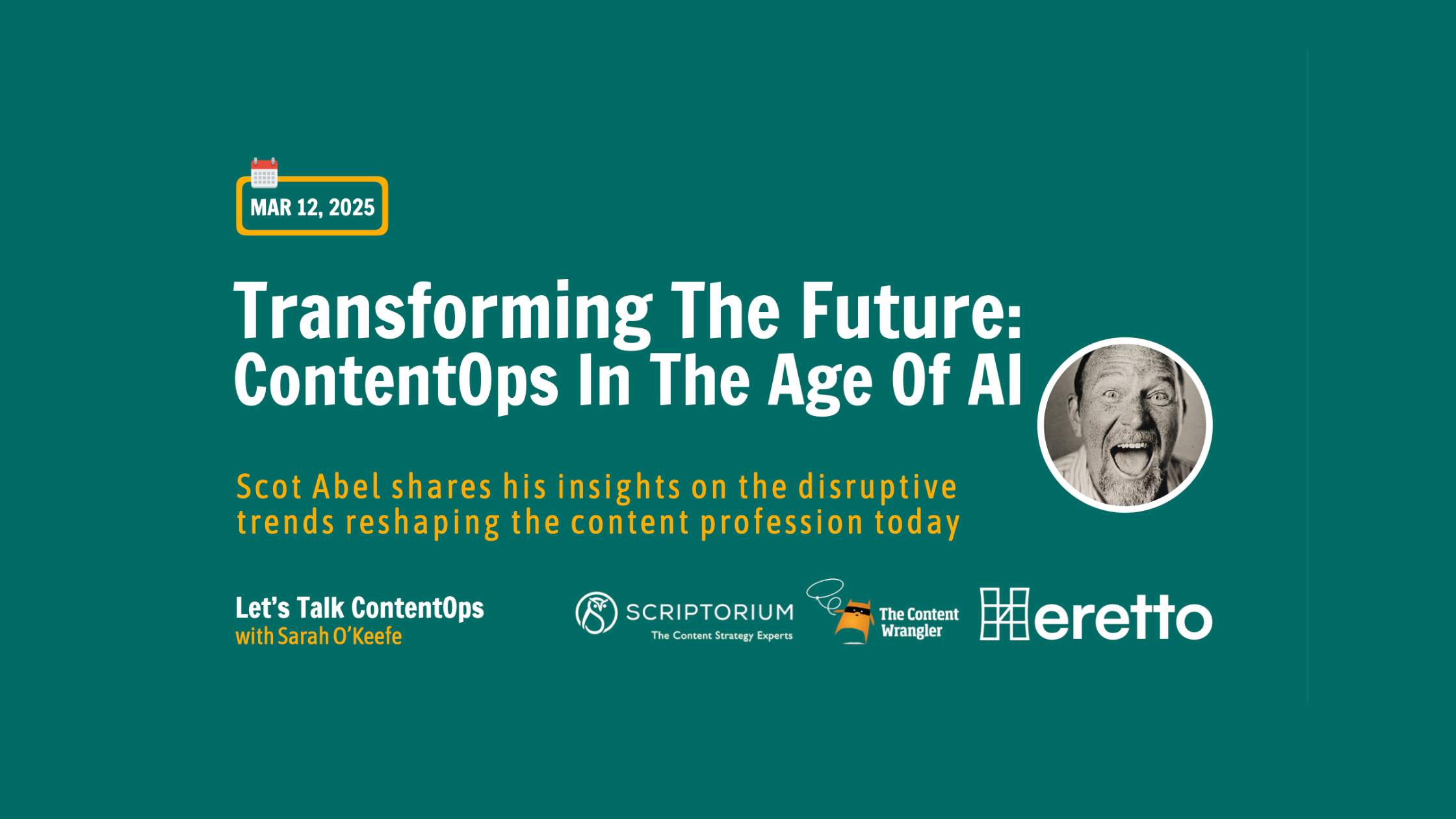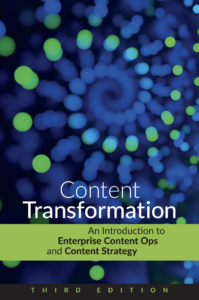Deliver content dynamically with a content delivery platform
Struggling to get the right content to the right people, exactly when and where they need it? In this podcast, Scriptorium CEO Sarah O’Keefe and Fluid Topics CEO Fabrice Lacroix explore dynamic content delivery—pushing content beyond static PDFs into flexible platforms that power search, personalization, and multi-channel distribution.
When we deliver the content, whether it’s through the APIs or the portal that you’ve built that is served by the platform, we render the content in a way that we can dynamically remove or hide parts of the content that would not apply to the context, the profile of the user. That’s the magic of a CDP. It’s delivering that content dynamically.
— Fabrice Lacroix

















